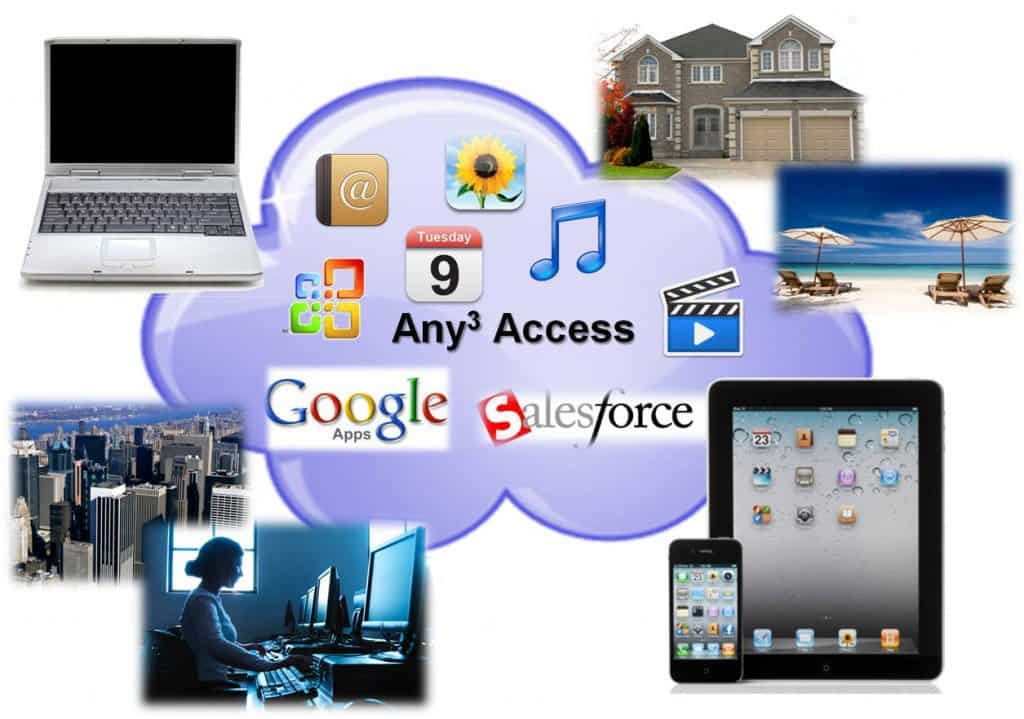
Since the inception of the end user computing (EUC) space in 1982, there have been many exciting moments including the first IBM PCs, the first Macintosh PCs, personal networking, desktop publishing, laser printers, Microsoft Office, and the Internet. More recently, the advance of portable devices and media-centric applications have been of interest, but it’s been some time since I’ve been really excited about using my PC. That’s about to change. The convergence of network capacity/availability, technology, and applications are about to create a whole new EUC experience both personal and professional – the cloud!
How the cloud is integrated into corporate infrastructure planning varies by client, but the implications for optimization, virtualization, flexibility, and management are dramatic. New business models are emerging, and firms are working though security, compliance, and other considerations at a feverish pace. While the cloud is going to be very disruptive to corporate infrastructure, and many articles have been written on that topic, little has been written about how the cloud is going to impact us personally, as end users. So, let’s go there.
A few weeks ago, Apple announced its forth-coming iCloud offering. Think about having anywhere, anytime, any device (Any3) access to all the media you’ve ever purchased (on any device) or ripped (legally) to a PC. Imagine no longer being tethered, memory constrained, or having to sync with your PC in order to have access to your personal media when and where you want, regardless of hardware. That’s exciting. That’s the cloud!
Additionally, little attention has been paid to how the cloud will ultimately change our professional computing experience. The reality is, the line between personal and corporate computing assets (from an end user perspective) is starting to blur. Imagine having the same Any3 access to every file, e-mail, contact, link, note, or application that you need, regardless of where that content originated, where you are physically, which application or version is licensed on your device, or even what device you happen to have available at the moment. Whether it’s your phone, tablet, notebook, office PC, home PC, a public PC, or even your grandma’s…you’ve got access to what you need! Next, think of the collaborative opportunities that will be enabled for document generation, review, and editing, and you get an idea of the future of EUC…it’s the cloud!
The cloud’s impact on EUC will go beyond just functionality and productivity, however. From a commercial perspective, the cloud will fundamentally change the way EUC services are procured, provisioned, licensed, updated, upgraded, and managed. It will also have positive implications on long standing issues like piracy and intellectual property.
From a usage standpoint, let’s think about just one of the commercial impacts in EUC that the cloud will dramatically impact…licensing. The cloud is going to make it truly use/user-centric. In an average 2,000-hour work year, how much do you actually use each of your applications? Maybe Office for 600 hours, PowerPoint for 500, a variety of other apps like Excel, SAP, Oracle, or Salesforce.com for another 400 or so combined, and one or two specialized applications for just a few hours or days? The cloud will usher in an era in which you’ll be able to use applications on demand, on any device, wherever you are, whatever time it is, for as much or as little time as you need them. And you won’t have to worry about licenses, versions, installation, updates, compatibility, etc.
Now that’s cool. That’s the cloud. And it’s coming soon to a device near you!
Learn more about Everest Group’s cloud transformation expertise.





